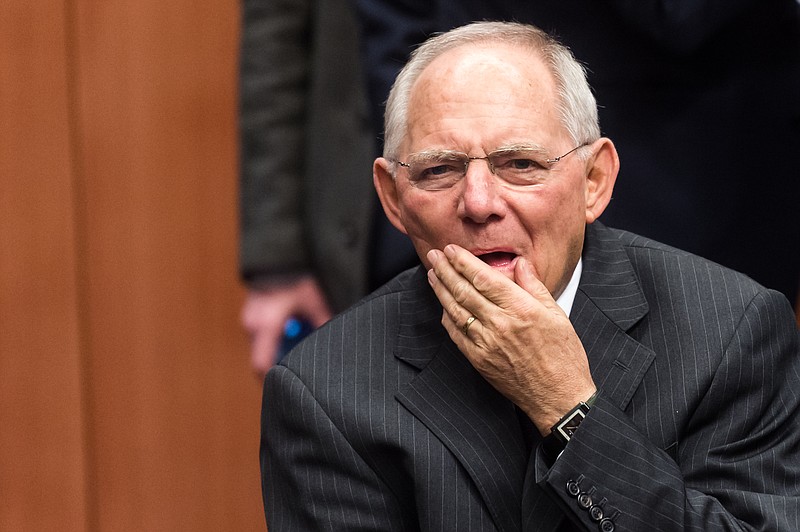BRUSSELS (AP) - Portugal's fellow states in the 19-nation eurozone are keeping a wary eye on its new government's plans to roll back budget austerity measures, with the bloc's top executive and Germany both warning the country not to miss deficit targets.
Although Portugal has received conditional approval for its budget from the European Commission, German Finance Minister Wolfgang Schaeuble said Thursday that straying from the path of fiscal rigor "would be very dangerous for Portugal."
Jeroen Dijsselbloem, chairman of eurozone group of finance ministers, said Portugal "needs to stand ready if necessary to do more to stay within the pact."
Last week, the EU's executive Commission cleared Portugal's budget, which aims to undo the previous government's cuts and privatizations, but only after extracting a promise for almost $1 billion in additional savings.
Schaeuble said it's a bad time to make drastic changes in the budget since "the markets are already nervous."
On Thursday, Portugal's borrowing rates in bond markets rose, a sign investors are somewhat more worried about its state finances. The 10-year bond rate rose 0.38 percentage points to 3.9 percent, by far the biggest rise in the eurozone.
Dijsselbloem said the rise in interest rates is another reason "to be committed to the economic policy of the monetary union."
Eurozone states are meant to keep their deficits under 3 percent of GDP. Portugal's new budget is expected to achieve a deficit of 3.4 percent this year, according to the Commission's estimates.
The EU Commission has insisted that budgetary rigor is needed to keep economies healthy and make sure nations are not burdened by excessive debt, which helped cause financial crises in several countries, notably Greece.
Portugal's budget became an issue after the election in November of a new Socialist government that presented an anti-austerity plan to the EU Commission last month.
Still, Dijsselbloem said he "heard the new government in Lisbon say that they are very committed to the growth and stability pact and very committed to the budgetary rules that we have."
At the end of their meeting, the eurogroup said in a statement it "welcomes the commitments of the Portuguese authorities to prepare, as of now, additional measures to be implemented when needed to ensure that the 2016 budget will be compliant."
